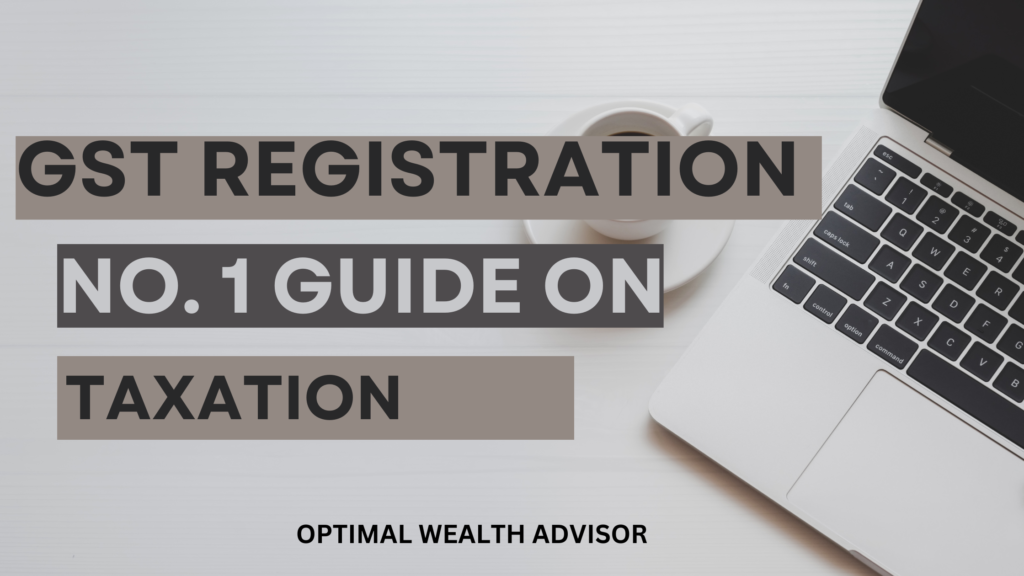The Goods and Services Tax (GST) revolutionized India’s indirect tax system. As a CA aspirant, understanding the intricacies of GST, including registration requirements, is crucial for your success. This blog post dives deep into the GST registration limit, a fundamental concept for businesses operating in India.
What is the GST Registration Limit?
The GST registration limit refers to the threshold turnover a business must exceed to mandatorily register for GST. Businesses exceeding this limit must obtain a GST registration number and comply with GST regulations, including filing returns and paying taxes.
Current GST Registration Limits (as of March 2024)
The GST registration limit varies depending on the nature of your business and its location. Here’s a breakdown of the current limits:
- Normal Category States:
- Supply of Goods & Services: Rs. 40 lakhs per year
- Special Category States:
- Supply of Goods & Services: Rs. 20 lakhs per year
- The special category states are Arunachal Pradesh, Manipur, Meghalaya, Mizoram, Nagaland, Tripura, Sikkim, and Uttarakhand. These states are accorded special economic and development considerations by the Indian government due to factors like hilly terrain, lower population density, and strategic location on the borders. The lower GST registration threshold in these states aims to provide a boost to business activity and economic growth.

Example: Determining GST Registration Requirement
Let’s consider a CA aspirant who decides to offer freelance tax consultation services from their home in Delhi (a normal category state). They anticipate a yearly turnover of Rs. 35 lakhs.
Analysis:
- Delhi’s GST registration limit for services is Rs. 40 lakhs.
- The anticipated turnover (Rs. 35 lakhs) is below the limit.
Conclusion:
In this case, GST registration is not mandatory for the CA aspirant. However, there are situations where registration might be beneficial even below the threshold.
Situations Where GST Registration is Mandatory Even Below the Threshold
There are specific scenarios where businesses, even with a turnover below the registration limit, must obtain a GST registration. Here’s a breakdown of these mandatory registration triggers:
- Inter-State Supplies: Supplying goods or services across state borders mandates GST registration irrespective of the turnover. This includes online sales through e-commerce platforms where deliveries are made to customers in different states.
- E-commerce Businesses: Any business, regardless of location or turnover, registered on an online platform like Amazon or Flipkart for making taxable supplies needs to register for GST.
- Capable of Supplying Through E-commerce: Even if a business isn’t currently selling on e-commerce platforms, if it has the infrastructure and capability to do so in the future, GST registration is mandatory. This is a proactive measure to avoid registration hassles when the business decides to enter the e-commerce space.
- Agents Supplying on Principal’s Behalf: Businesses acting as agents for supplying taxable goods or services on behalf of a principal who is already registered under GST need to obtain their own GST registration.
- Casual Taxable Person: A “casual taxable person” is someone who occasionally makes taxable supplies exceeding Rs. 10 lakh in a year (even if the total turnover for the year is less than the registration limit). Such occasional supplies could be from closing down a business or selling an asset. In this case, GST registration is mandatory for that particular tax period.
- Opting Out of Composition Scheme: Businesses registered under the composition scheme, a simplified GST compliance scheme with lower tax rates, cannot claim input tax credit (ITC). If a business under the composition scheme wants to avail ITC benefits, it needs to exit the scheme and register for regular GST, even if the turnover is below the threshold.
Understanding these mandatory registration triggers beyond the threshold is crucial for advising clients effectively. It ensures they remain GST compliant and avoid any potential penalties or legal hassles.
Key Takeaways
- The GST registration limit in normal category states is Rs. 40 lakhs for the supply of goods or services.
- Special category states have a lower limit of Rs. 20 lakhs.
- Businesses below the limit can voluntarily register for GST benefits like ITC claim.
- Inter-state supplies, e-commerce businesses, and those opting out of the composition scheme need to register irrespective of turnover.
Beyond the Limits: Other Factors Influencing GST Registration
While the threshold limit is a primary factor, consider these additional points when advising clients on GST registration:
- Nature of Business: Certain sectors, like restaurants, might benefit from registration due to frequent input tax purchases.
- Future Growth Projections: If a business anticipates exceeding the limit soon, pre-emptive registration can smoothen the transition.
- Compliance Advantages: Registration
- necessitates maintaining detailed accounts and invoices. This enforced discipline improves a business’s overall financial record-keeping and simplifies compliance with other tax regulations like income tax.
Understanding the Composition Scheme
- The composition scheme is an attractive option for small businesses with a turnover below Rs. 1 crore per year (Rs. 50 lakhs for certain categories). It offers simplified GST compliance with lower tax rates. However, there are limitations:
- Limited ITC Availment: Businesses under the composition scheme cannot claim ITC on purchases, which can be a disadvantage for businesses with high input tax content.
- Inter-State Supply Restrictions: The composition scheme restricts inter-state supplies of goods and services. Businesses with clients or suppliers in other states cannot opt for the composition scheme.
Choosing Between Composition Scheme and Regular GST Registration
- The decision to opt for the composition scheme or regular GST registration depends on various factors specific to each business. Here’s a breakdown to guide your analysis:
- Suitable for Composition Scheme:
- Businesses with a low turnover and minimal ITC requirements.
- Businesses primarily focused on local sales with limited or no inter-state transactions.
- Suitable for Regular GST Registration:
- Businesses exceeding the composition scheme turnover limit.
- Businesses with significant input tax purchases and wanting to avail ITC benefits.
- companies who provide services or commodities beyond state lines.
- Businesses anticipating future growth and potential transition beyond the composition scheme limits.
Conclusion
- Understanding the GST registration limit and its nuances is essential for CA aspirants. This knowledge equips you to provide clients with informed advice on GST compliance and optimize their tax strategies. Remember, staying updated with the latest GST developments and keeping yourself informed about changes in limits or regulations is crucial for success in this dynamic field.
- Bonus Tip: Familiarize yourself with the GST return filing requirements for businesses under the regular scheme and the composition scheme. This will help you guide your clients on choosing the most suitable option and ensure proper GST compliance.
- Remember: This blog post is for informational purposes only and shouldn’t be substituted for professional tax advice.
- I hope this extended version of the blog post provides a more comprehensive understanding of the GST registration limit and its implications for CA aspirants.
Do checkout our other articles on taxation by clicking here!
For more details on gst registration, do visit gst official website by clicking here!

